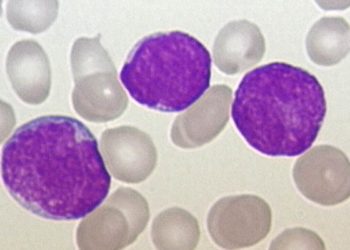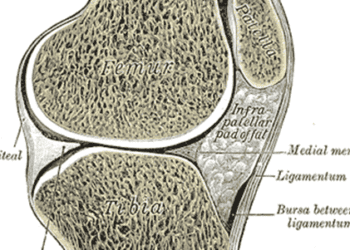Vitamin D supplementation in the ICU does not improve outcomes [VITdAL-ICU trial]
1. Vitamin D supplementation did not change length of ICU or hospital stay among individuals with vitamin D deficiency in this randomized controlled study.
2. The risk of hospital mortality was lower among individuals receiving vitamin D replacement, but there was no mortality benefit at 6 months.
Evidence Rating Level: 1 (Excellent)
Study Rundown: Vitamin D deficiency has been found to be a risk factor for morbidity and mortality. The role of vitamin D supplementation is controversial and different studies have produced discordant results. The effect of vitamin D supplementation in vitamin D deficient critically ill individuals is unknown. This study randomized 492 individuals in intensive care units (ICUs) to receive a high loading dose of vitamin D and, starting 28 days later, five monthly maintenance doses or placebo. The primary outcome was length of hospital stay from the loading dose of vitamin D. At 6 months, 475 individuals were analyzed and 42% were found to have severe vitamin D deficiency (defined as 12 ng/mL or lower).
In summary, the length of ICU and hospital stay was not significantly different between the two groups. In the subgroup with severe vitamin D deficiency, there was a significantly lower risk of hospital death among those in the vitamin D group when compared to the placebo group (HR 0.56, 95%CI 0.35-0.90). There was no difference between the two groups in terms of 6-month survival. Strengths of this study include the long follow-up and the enrollment of patients from different types of ICUs with a variety of medical problems. This study is limited by the fact that all of the patients came from a single tertiary center and were fairly demographically homogeneous. While this study does not show a significant benefit associated with correcting vitamin D deficiency in critically ill patients, a larger study should be done to further investigate the role of vitamin D supplementation among critically ill patients with vitamin D deficiency.
Click to read the study in JAMA
Relevant Reading: Vitamin D and risk of cause specific death: systematic review and meta-analysis of observational cohort and randomised intervention studies
In-Depth [randomized, controlled study]: This study randomized 492 individuals in ICUs to receive a high loading dose of vitamin D (540,000 IU) and 5 maintenance doses of 90,000 IU per month for the following 5 months or placebo. Hospital stay, in hospital mortality, and 6 month mortality were compared in the 475 individuals who were analyzed at the conclusion of the study. Approximately 42% of individuals were found to have severe vitamin D deficiency (≤12 ng/mL). The length of hospital stay (20.1 days for vitamin D vs. 19.3 days for placebo) was not statistically significantly different between the two groups. In hospital mortality (p=0.80) and 6-month mortality (p=0.09) also did not differ significantly between the two groups. The subgroup of patients with severe vitamin D deficiency who received vitamin D supplementation had significantly lower in hospital mortality (HR 0.56, 95%CI 0.35-0.90), but there was no difference in 6-month survival.
More from this author: Ambulances equipped for thrombolysis allow for more rapid stroke treatment, Stem cell transplant may be effective in sickle cell disease, No benefit with hydroxychloroquine (Plaquenil) over placebo in Sjogren’s Syndrome [JOQUER Trial], Low carb and low fat diets most effective for weight loss, Climate change has important impact on health
Image: PD
©2012-2014 2minutemedicine.com. All rights reserved. No works may be reproduced without expressed written consent from 2minutemedicine.com. Disclaimer: We present factual information directly from peer reviewed medical journals. No post should be construed as medical advice and is not intended as such by the authors, editors, staff or by 2minutemedicine.com. PLEASE SEE A HEALTHCARE PROVIDER IN YOUR AREA IF YOU SEEK MEDICAL ADVICE OF ANY SORT.







